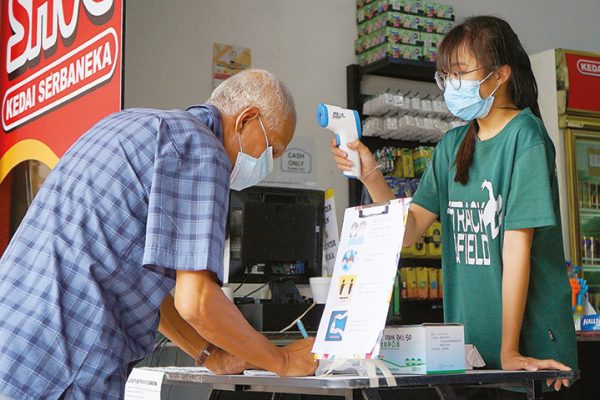Experts have expressed concerns that imposing stricter restrictions as a measure to break the Covid-19 transmission may hurt the economy and people’s livelihoods further.
Malaysia reported 3,332 new Covid-19 cases yesterday, marking more than 3,000 cases for two consecutive days.
Research for Social Advancement economic advisor Frederik Paulus said there is no question that the government should contain the pandemic for sanitary, social and economic reasons.
“No expense should be spared in the function of this objective, whether it is on ‘find, test, trace, isolate, support’ capabilities, the vaccine rollout or protecting our economic fabric by supporting jobs and businesses,” Paulus told The Malaysian Reserve.
“Where to find the money? Raising taxes would be suicidal in this economic environment, so that leaves borrowing, which the government has already been doing, but could do more of. The government increased the debt ceiling to 60% (from 55%) with Budget 2021.
“The 60% ceiling has not yet been reached, and given the scale of the challenge, there should be little concern about raising it further.”
He stressed that there are different consequences to these decisions, but the fundamental point is that if the political will to spend is there, the funds can be found to aid the country.
In fact, he said, international organisations such as the International Monetary Fund and World Bank expect most countries to show widening fiscal deficits and rising debt levels because of the pandemic, so Malaysia is not at a specific disadvantage.
He said coming up with accurate growth projections is difficult at the best of times and practically impossible in the current environment, where the economy has been hit by multiple shocks and the consequences are hard to measure at this stage.
“Moreover, debating over one or two percentage points of GDP growth detracts from the real challenges in my opinion, namely protecting jobs and businesses in the short term and implementing the structural reforms necessary for sustainable and equitable economic growth in the future,” he explained.
Meanwhile, Centre for Market Education CEO Dr Carmelo Ferlito said a containment strategy needs to be focused on protecting categories at risk, while allowing the stronger part of the population to have a normal life, eventually get infected and develop immunity.
He emphasises that it would allow to save resources in generalised subsidies and to invest more where it is needed: Hospital beds and research and development for a long-term treatment.
Ferlito further said Malaysia needs two main points — to avoid lockdowns and to identify a comprehensive growth strategy, which includes reaffirm openness to businesses (domestic and international).
Malaysian Medical Association president Prof Datuk Dr Subramaniam Muniandy said stricter enforcement is possible due to the latest Covid-19 development.
– Published in The Malaysian Reserve on 30 April 2021.

